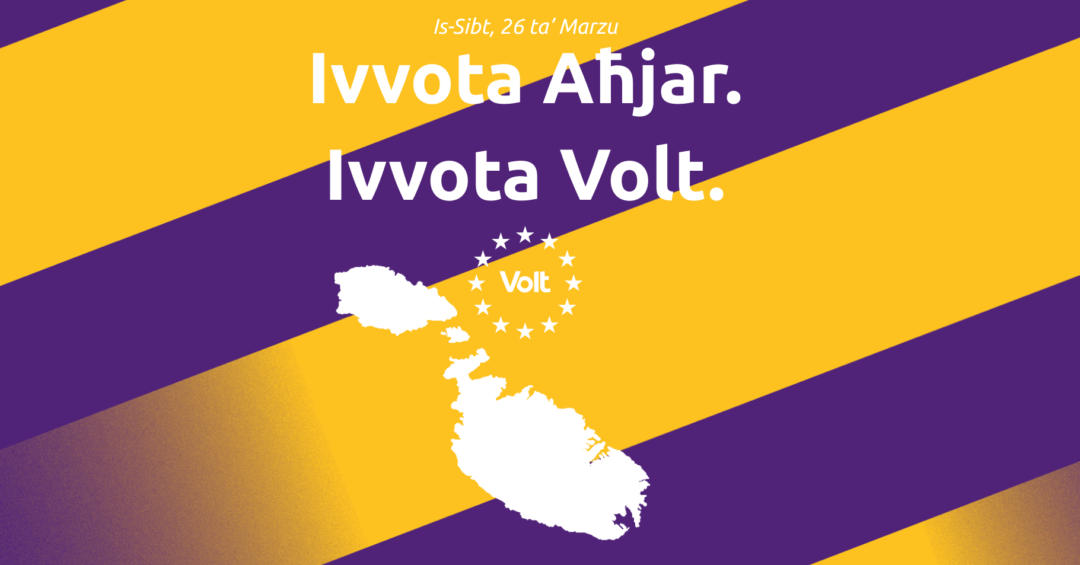Volt Malta, one of the country’s newest political parties, has promised to create “a modern and social business environment” in its recently released election manifesto.
The party, which will field two candidates on the eighth, ninth, tenth and eleventh electoral districts, notes that the world is currently in the middle of the “fourth industrial revolution”, adding that the Government is responsible for ensuring a fair and accessible playing field for businesses.
“Local businesses must be helped to keep up with the changes taking place so as not to risk falling behind,” the manifesto states.
Turning to specific proposals related to business and the economy, the manifesto states that Volt would expand and improve Business 1st – the Government’s main point of contact for the business community – to cover any time of business. The party said it would also make the registration process for new businesses easier and cheaper, with related fees reduced to just one euro. Micro-enterprises would be able to register and commence operations completely paperless within three days.
Furthermore, Volt said it would create a Business Incubator Network to support start-ups with a wide array of information, options and tools. A network for angel investors and venture capital firms would also be set up to “ensure funding from highly experienced sources who have a strong familiarity with Malta’s and/or European single market business landscape.
To help small businesses, Volt would create tax incentives for new SMEs for up to three years if they continuously create jobs or re-invest their profits. Echoing a proposal in the Nationalist Party’s manifesto, Volt said it would also create incentives for employees to buy stocks in the companies they work for.
Arguing that cooperatives offer rigid structures which are capable of effectively coping with shocks to the economy, Volt said it would significantly modernise the “outdated” 20-year-old legislation surrounding them.
In an effort to encourage more listings and liquidity in the Malta Stock Exchange, the party said it would begin a process of privatisation with a qualified strategic partner.
Volt noted that the pandemic has had a significant impact on various Maltese businesses, with the country’s relatively high corporate tax rate adding another barrier to the viability of businesses. To remedy this, Volt said it would reduce the corporate tax rate specifically for Maltese companies, with the rate for foreign-owned businesses remaining the same.
Volt also said it would work to introduce new markets and industries to the country, namely robotics and vertical farming.
Finally, turning to Gozo, the party said that those who live on the island should be encouraged to work on the island, so that its potential and opportunities could be properly unleashed. To do this, Volt would create various business incubators, focusing specifically on agri-technologoy.
Government introduces mandatory physical inspection for vintage vehicle classification
From 1st September 2025, vehicles seeking vintage status must undergo a physical inspection by the official classification committee
Local filmmakers paid just €250 to screen at Mediterrane Film
The figure stands in stark contrast to the estimated €5 million total spend
Malta International Airport closes in on one million passengers in June
Meanwhile, aircraft traffic movement rose by 4.5 per cent year on year






